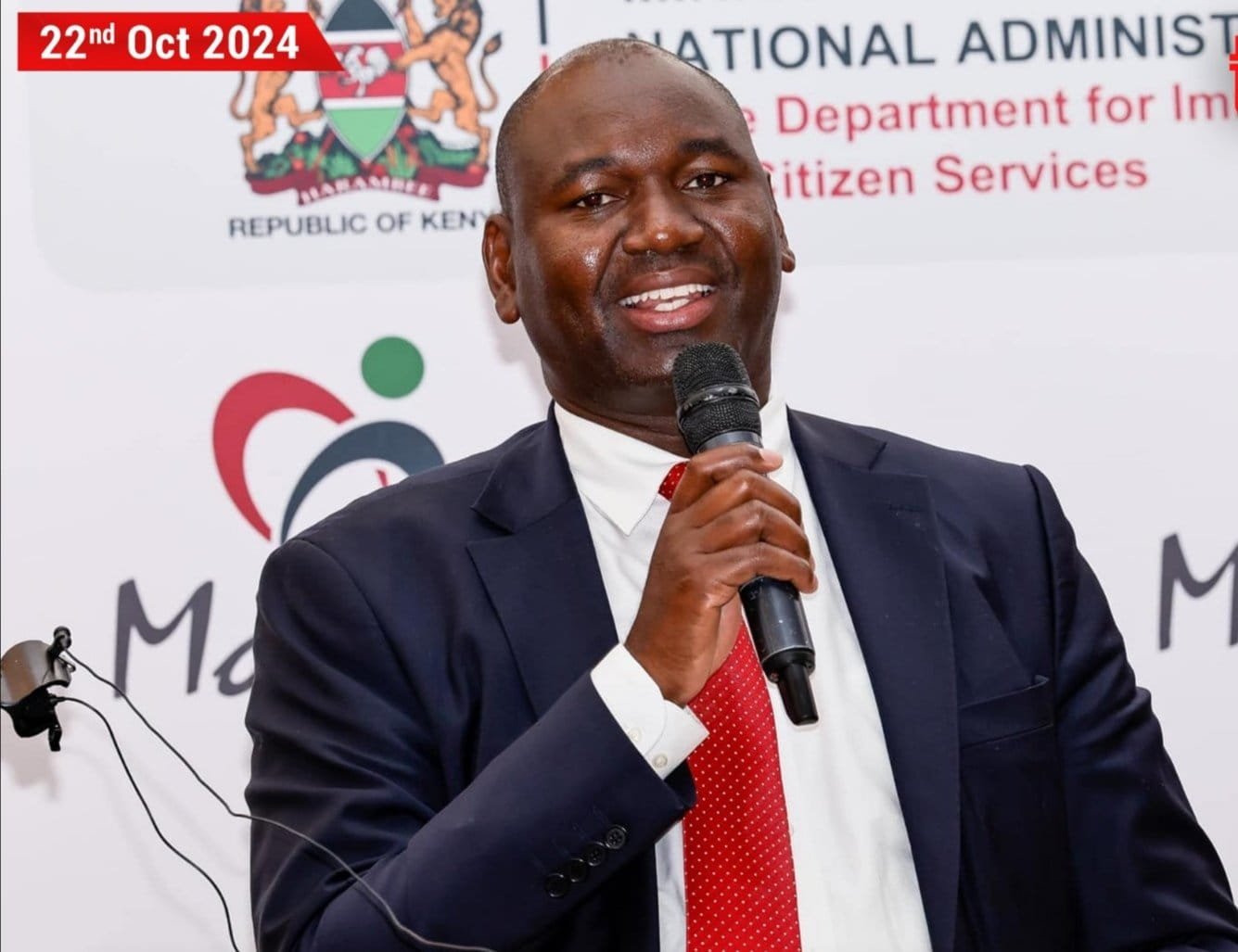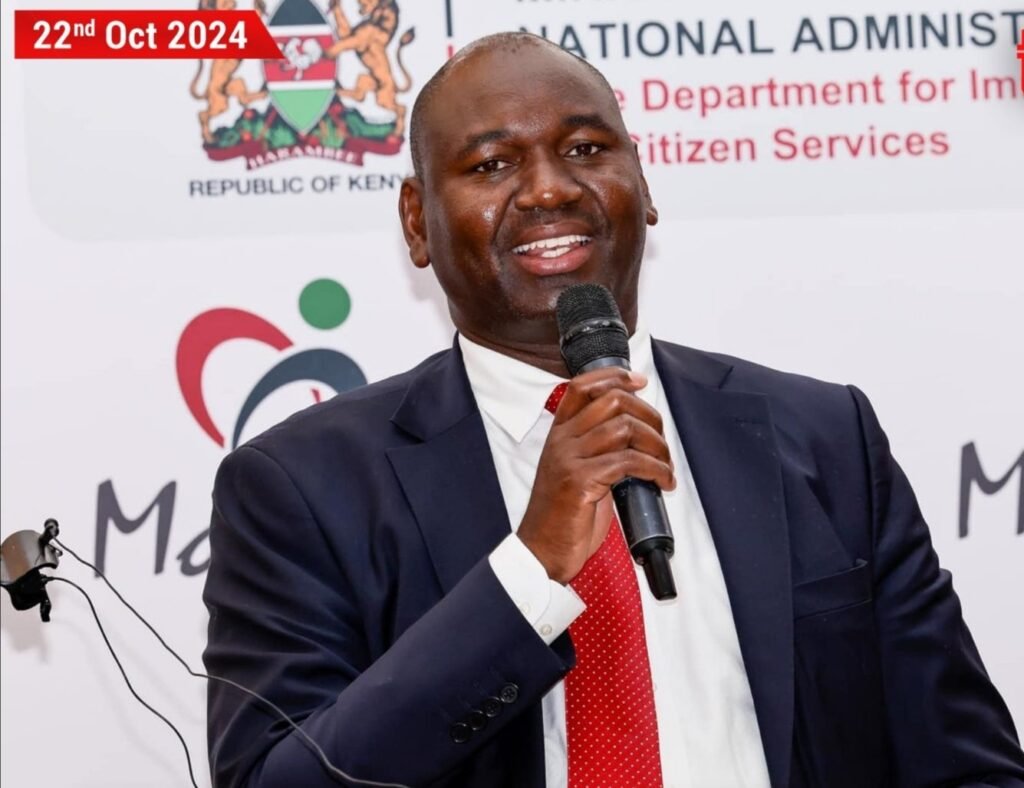Empowering 2024 KCSE Candidates: The Introduction of Maisha Cards for Tertiary Education


Introduction to Maisha Cards and Their Significance
The Maisha Cards are an innovative financial tool introduced to support the 2024 Kenya Certificate of Secondary Education (KCSE) candidates as they transition to tertiary education. Designed specifically to assist students in meeting the eligibility requirements for the Higher Education Loans Board (Helb), these cards serve a crucial role in facilitating access to financing for higher education. The Maisha Cards are not merely an identification tool; they represent a broader commitment to enhancing educational opportunities and ensuring financial inclusivity for students across Kenya.
One of the primary purposes of the Maisha Card is to streamline the application process for loans from Helb, providing a structured pathway for students to secure the necessary funding for their higher education. The initiative aims to alleviate financial barriers that may hinder students from pursuing their academic aspirations. Eligible candidates are those who have successfully completed their KCSE examinations and meet specific criteria set forth by the program. This focused effort acknowledges the unique challenges faced by many students in accessing higher education due to financial constraints.
The introduction of Maisha Cards also underscores the government’s dedication to improving the education system and fostering a culture of learning among youth. By offering a financial safety net, these cards empower students, allowing them to concentrate on their studies without the overwhelming burden of economic uncertainty. Moreover, the initiative aligns with the broader goals of increasing enrollment in tertiary institutions and improving educational outcomes in Kenya.
In essence, the Maisha Cards are more than just a practical solution for financial aid; they symbolize hope and opportunity for the 2024 KCSE candidates as they embark on their journey toward higher education. This initiative not only aims to support individual students but also seeks to transform the educational landscape in Kenya by promoting access and equity in higher education financing.
The Role of Julius Bitok and His Advocacy
Julius Bitok, the Principal Secretary for Education, has emerged as a pivotal advocate for the Maisha Cards initiative aimed at empowering 2024 KCSE candidates. His commitment to enhancing educational accessibility reflects a broader vision aligned with national educational goals, striving to support students as they transition to tertiary education. Bitok’s advocacy centers on the belief that financial accessibility plays a critical role in encouraging academic pursuits among students from diverse backgrounds.
In numerous statements, Bitok has emphasized the significance of tailoring educational resources to meet the unique needs of students. He has articulated that the introduction of the Maisha Cards represents an innovative approach to financial support, potentially alleviating some of the burdens faced by students seeking higher education. The Maisha Cards are designed to provide students with a streamlined method of accessing financial support, thus empowering them to make informed decisions about their educational journeys without the stress of financial constraints.
Bitok’s advocacy extends beyond mere financial support; he envisions a system where students feel encouraged and confident in their pursuit of education. By focusing on uplifting students’ living standards and facilitating access to necessary resources, he aims to inspire a new generation of learners equipped to contribute significantly to the nation’s development. This initiative is particularly crucial as it aligns with the government’s commitment to enhancing the quality of education, ensuring that no student is left behind due to financial challenges.
Through his leadership, Julius Bitok is making strides in transforming the educational landscape. His relentless pursuit of equity and inclusion in education demonstrates a deep understanding of the challenges faced by KCSE candidates. As the Maisha Cards initiative takes shape, it holds the potential to significantly impact the lives of many students, reinforcing the notion that access to education is a fundamental right that can catalyze personal and national growth.
Understanding Helb Requirements: Why Maisha Cards Matter
In Kenya, the Higher Education Loans Board (Helb) plays a crucial role in facilitating access to tertiary education through financial assistance. Students seeking loans to fund their education must adhere to specific requirements set by Helb. These criteria include the provision of valid documentation, such as proof of admission to an accredited institution, identification documents, and in some cases, guarantors who can pledge a reliable repayment plan. Furthermore, eligibility extends beyond documentation to encompass factors such as academic performance and financial need, assessing whether applicants possess the aptitude to undertake higher education.
The introduction of Maisha Cards offers a promising solution to streamline the Helb application process. These cards serve as identification and financial tools that could simplify how students present their credentials and navigate the requirements set by the board. For instance, the Maisha Card would consolidate necessary documentation into one accessible format, potentially alleviating the cumbersome task of gathering multiple documents. This integration may enhance the efficiency of the application process, allowing students to focus more on their academic pursuits rather than the hurdles associated with funding.
Moreover, economic challenges often hinder students from enrolling in colleges and universities. The Maisha Card is designed not only to ease the documentation aspect but also to provide financial literacy and management training. By empowering students with knowledge on managing their loans wisely, the initiative aligns seamlessly with Helb’s commitment to foster responsible borrowing and financial accountability among students. Through this alignment, Maisha Cards can significantly ease the financial burden faced by prospective applicants, encouraging higher enrollment rates in tertiary institutions.
Incorporating the Maisha Card into the education financing framework reflects a proactive approach to addressing the challenges encountered by students when applying for Helb loans. By ensuring they meet essential requirements in a more streamlined manner, the cards pave the way for a brighter educational future.
The Future of Education in Kenya: A Look Ahead
The introduction of the Maisha Cards initiative signifies a pivotal advancement in the domain of education in Kenya, potentially reshaping the landscape for future learners. By providing designated financial support to 2024 KCSE candidates, the initiative aims to facilitate better access to tertiary education, thus promoting inclusivity within the educational framework. This ambition aligns with the government’s ongoing efforts to enhance educational accessibility and equity, ensuring that every youth has the opportunity to pursue higher learning, irrespective of their socioeconomic background.
As the Maisha Cards initiative unfolds, it presents a spectrum of opportunities for both students and educational institutions. One primary advantage lies in the increased enrollment rates at tertiary institutions, stemming from the financial assistance these cards provide. This could lead to a more diverse student body, fostering an environment rich in varied perspectives and ideas. Moreover, as more individuals gain access to higher education, the overall skill set of the population will likely improve, contributing to the nation’s economic development and innovation.
However, challenges accompany these prospects. Key obstacles include the effective distribution and management of Maisha Cards, ensuring that all eligible candidates receive their benefits. There is also the necessity for educational institutions to adapt to the influx of new students, which could strain existing resources and infrastructure. Additionally, the government and educational bodies must work collaboratively to monitor the impact of the initiative, addressing any emerging issues promptly to sustain the program’s effectiveness.
In navigating these challenges, stakeholders can help ensure that the Maisha Cards initiative achieves its goal of empowering youth through enhanced access to tertiary education. By strengthening partnerships between the government, educational institutions, and community organizations, Kenya can cultivate a robust educational environment that nurtures future generations, ultimately shaping a more skilled and competitive workforce.




